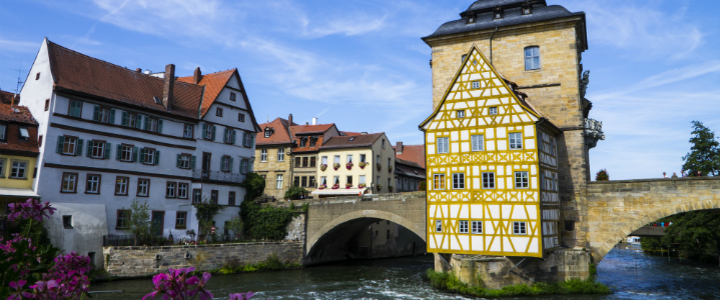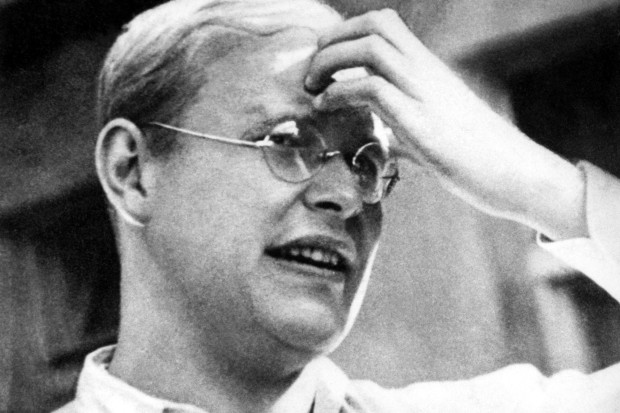Call for Papers: Global Network for Public Theology, 23-26 September 2019, Bamberg Germany
 Tuesday, December 4, 2018 at 11:50AM
Tuesday, December 4, 2018 at 11:50AM  The next meeting of the Global Network for Public Theology will take place form 23-26 September 2019 in the beautiful city of Bamberg in Germany. This event will be hosted by the Dietrich Bonhoeffer Centre for Public Theology at the University of Bamberg.
The next meeting of the Global Network for Public Theology will take place form 23-26 September 2019 in the beautiful city of Bamberg in Germany. This event will be hosted by the Dietrich Bonhoeffer Centre for Public Theology at the University of Bamberg.
I had the joy of visiting the centre, and doing a public lecture there, in May 2017.
You can download a PDF copy of the call for papers here.
The call for papers for the next meeting is now open. The closing date for abstracts is 31 December 2018. The title of the conference is:
“Place and Space: Theological perspectives on living in the world”
Here are some further details on the theme.
Public theologies reflect on the contextuality of the Christian religion. Much of this contextuality is dependent on place: place as the culture and the society in which religions are situated, place as the position from where a theologian speaks, place as the biographical contingencies that shape people’s lives. Moreover, public theologies ask for the contribution of Christian ethics to society, thereby shaping the social, cultural, and religious space to which they belong. The consultation analyses the categories of space and place to deepen the understanding of contextuality as well as to explore glocal problems.
Proposals addressing one of the following dimensions are welcomed:
Who belongs to a nation, society, or community? Who may belong? How does migration influence societies? What are the possibilities – globally and locally – to alleviate the drawbacks that may result from the chances of birthplace?
- place to live
– keywords: migration, homelessness, new concepts of housing; trading citizenships; colonised and invaded space, work in a globalised world
How is public space shaped and used? How do forms of aesthetic expression change the self-awareness of a society? How can public space be prevented from eroding? How do we deal with spaces of exclusion from society?
- space to live
– keywords: civil society, urban development, architecture and aesthetics, memorials and monuments, perception of and public support for public space, private and public space
How is the distinction between “sacred” and “profane” drawn in different contexts? What is the public function of sacred places in religiously plural societies? Can spirituality encourage to move beyond existing borders? Which heterotopias, sacred and secular, can we discover?
- sacred space
– keywords: churches as space within space: encounter with God, space for retreat, place of commemoration, platform for intercultural exchange; church buildings and their secular use; the church within society: mechanisms of exclusion and paternalism of inclusion;
From where do we speak? How does religion affirm or challenge mechanisms of segregation?
- space and speech
– keywords: theologies of positionality and their limits: nationalism, theology of the land; populist movements; lebensraum; space and perspectiveThe conference language will be English.
Accepted papers might be published in the conference proceedings.
- politics of space
Which borders regulate access to the public in a given society? Is there a hierarchy of spaces within society?
– keywords: the public and civil society; gender, race, and other ways of coding public space; othering and asymmetries of social construction, zones and milieus, criteria of access and marginalisation, permeability of social space(s); space and stage: self- presentation in public
- God and space
How does the spatial turn influence our image of God? How to deal with God's presence and absence in biblical theology and contextual perception? How is our perception of God shaped by its context?
– keywords: contextual theology and the doctrine of God; instances of kenotic theology: creation theology, theology of liberation; divided obligations: to the state, to God
- Deadline for proposals and submission guidelines
We invite theologians and scholars of neighbouring research areas to submit proposals of no more than 300 words by December 31st, 2018. These can be submitted electronically to dbfoet.fs-oet@uni-bamberg.de. Please add a (provisional) title to your proposal and send us your contact details.



